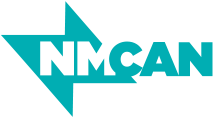Our Mission
WHO WE ARE
NMCAN partners with young people to build community, promote equity, and lead change.
WHAT WE DO
Since 1990, NMCAN has been leveraging community partnerships to improve children and youth’s experiences in foster care. Today, we have grown to authentically engage young people impacted by foster care, the juvenile justice system, and/or homelessness to advocate for systems change that improves their transition to adulthood and positively transforms our community. Together, we work to:
1. Connect young people to healthy relationships with peers and community networks to strengthen their sense of belonging
2. Build young people’s leadership skills around personal growth and self-advocacy
3. Guide partners and systems to reflect the needs, values, and priorities of young people
Our programming sends young people the message that they have great value and their civic engagement is essential to building equitable systems. NMCAN envisions innovative systems of support in which all families are able to access resources without stigma, heal from generational trauma, and lead satisfying lives in safe communities.
HOW WE DO IT
Our work is grounded in four central approaches:
AUTHENTIC YOUTH ENGAGEMENT
We meet young people where they are— supporting them to build their social capital, access community resources, and advocate for their needs and solutions. We believe young people should have a respected voice and full participation in the development of the programs and policies intended to support them.
EQUITABLE OPPORTUNITIES
We promote anti-racist policies and practices and encourage young people to utilize their unique experiences as they pursue personal goals and engage in our advocacy work. This is particularly important because young people of color are disproportionally represented in the foster care and juvenile justice systems. We support them and our partners to better understand the through lines between the negative judgment and surveillance of poor communities and communities of color, and identify policies and practices that work to dismantle systemic racism.
BUILDING COMMUNITY
We link young people to healthy, stable relationships as well as work with local partners to understand the situations young people face. This is critical because our organization is not able to address all the challenges young people face, and our leadership development programming is not designed to stand alone. We believe a cohesive and informed community will help drive systems change.
STRENGTHS-BASED PRACTICES
We recognize that, in addition to trauma that forced young people’s disconnection from their families and communities, many young people face further stressors within systems. Our programming values all people, believes in their dignity and agency, and is responsive to their distinct needs.
